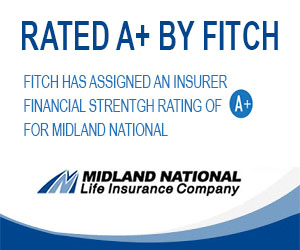FIDUCIARY TRUST INTERNATIONAL: New Opportunity Zone Investments Can Ease the Pain of Capital Gains

Fiduciary Trust International issued the following announcement on Jan. 22.
As part of the tax reform package introduced by Congress in 2018, a program was created to encourage development in certain areas of the country referred to as Qualified Opportunity Zones (QOZ).
After gathering information from all 50 states, Congress designated roughly 8,700 census tracts as Qualified Opportunity Zones—offering a number of tax incentives to attract businesses and investors to these communities. In general, we believe this program could attract significant capital to many of the targeted areas. But we would also caution that QOZ investments carry specific risks and restrictions that are worth careful consideration.
In this Q&A, we offer a brief summary of the pros and cons of investing in QOZs, based on the information available so far and the questions we are hearing from investors.
What Tax Incentives Do QOZ Investments Offer?
Investing in QOZs offers three significant tax breaks:
1. Defer Capital Gains Taxes
Normally, investors are required to pay federal capital gains taxes in the year they are realized. But if capital gains are reinvested in a QOZ project within 180 days, that tax obligation can be deferred until December 31, 2026.
2. Step-Up Your Tax Basis
In addition to postponing tax payments, reinvesting capital gains in a QOZ can also reduce your tax bill. Investors can "step-up" the tax basis on 10% of their QOZ investment after holding it for five years, and step-up an additional 5% to fair market value after holding the QOZ investment for seven years—reducing the total tax obligation by 15%, payable at the end of 2026.
3. Permanent Tax Exclusion
Finally, the tax basis of the entire QOZ investment automatically steps up to fair market value after an investor has held it for ten years. So, if you sell your QOZ investment after ten years, you will not pay capital gains taxes.
What Am I Actually Investing In?
When you invest in a QOZ, you are essentially investing in commercial real estate. Therefore, QOZ holdings have many of the same risk and reward characteristics as other real estate investment vehicles.
How Does Someone Invest in a QOZ?
You can invest directly by purchasing property in a Qualified Opportunity Zone. But we expect many investors will focus on funds and other vehicles created by institutions with real estate development expertise, mainly because they provide the benefits of diversification and professional management.
How Do I Determine if Investing in a QOZ Is Right for Me?
There are several important factors to consider when evaluating the suitability of QOZ investments.
First, investors need to have accumulated capital gains, be willing to realize those gains relatively soon, and be able to assess the pros and cons of a QOZ investment versus other tax strategies that might also minimize or defer capital gains taxes.
This assessment also needs to be made fairly quickly. Since the QOZ investment must be held for seven years to qualify for the 15% step-up in tax basis, and tax payments are due in December of 2026, gains would need to be harvested in 2019 and reinvested within 180 days to qualify for the 15% tax break.
In addition, investors should carefully consider QOZ lock-up commitments. In our view, QOZs are not suitable for investors who believe they might need access to funds invested in a QOZ within the next 10 years. In addition, we would strongly recommend against planning to sell a portion of your QOZ investment to meet your tax obligation. Instead, we encourage all QOZ investors to set aside capital specifically for tax payments.
Also reducing some of the potential appeal for investors is that any fund or vehicle created for QOZ purposes will likely have other characteristics, in addition to long lock-up requirements, that are similar to private equity or alternative investments. They are likely to include large minimum investment requirements, limited transparency, and delayed tax reporting (Schedule K-1).
Does Fiduciary Trust Offer QOZ Investments?
QOZs represent a new and evolving addition to the investment universe. Therefore, we continue to look for an approach that will allow our clients to take full advantage of the opportunities they present.
Since the IRS is still putting the finishing touches on QOZ regulations and these investments do not have an established track record, we are evaluating the potential risks and rewards carefully before making any recommendations. We also expect a number of QOZ vehicles to initiate fundraising activities in the first quarter of 2019. At the same time, we recognize the importance of acting quickly. So, we are working diligently to identify the most qualified investment managers and compelling QOZ investment vehicles available.
We will provide additional views on QOZs in the coming weeks and months. In the meantime, please reach out to your portfolio manager or any other member of your Fiduciary Trust team with questions.
Original source: https://www.fiduciarytrust.com/insights/commentary?commentaryPath=templatedata/gw-content/commentary/data/en-us/en-us-ftci/tax-planning/january-17-2018-new-opportunity-zone-investments-can-ease-the-pain-of-capital-gains&commentaryType=TAX%20PLANNING






 Alerts Sign-up
Alerts Sign-up